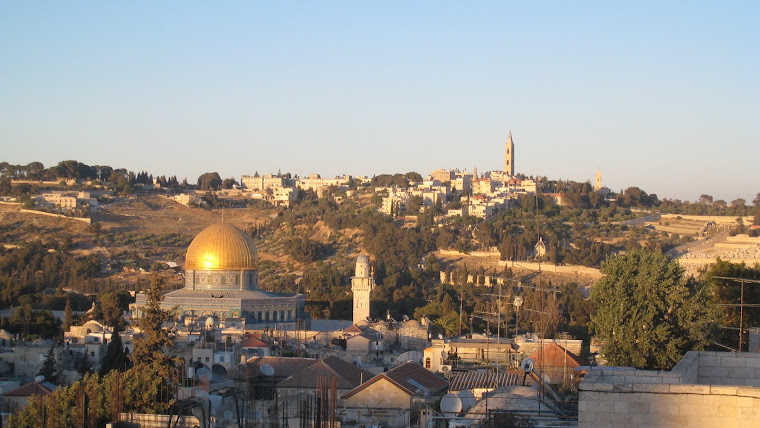| In the name of Allah, the Beneficent, the Merciful |
The quote in this blog's description is how the great Muslim general Salahuddin described the importance of Al Quds (Jerusalem) to King Richard the Lionheart during the Third Crusade (1189-1192).
How many of us today know the importance of Al Quds in our faith, let alone would be able to explain it to others? In today's climate when it is no longer in the hands of the Muslims, it is more important than ever for us all, young or old, to learn the virtues of Al Quds. Masjid al Aqsa itself is under threat by fundamentalist Zionists who are openly and actively striving to demolish the masjid and build a new temple in its place (posts to come about this in future, inshaAllah).
If we don't know about Al Quds or have any attachment to it, how are we going to contribute to the movement to protect it? The first step towards building an attachment is to know exactly why Al Quds is such a big deal to Muslims. Knowledge builds love and attachment, and these are then a motivation to add our voices to the wider movement striving to keep Al Quds, its masaajid and its people safe.
This blog hopes to build such love and attachment in our hearts by educating ourselves about the importance and virtues of Al Quds. The blessed and final Prophet of Allah, Muhammad (peace be upon him), made it crystal clear that Al Quds is home to the third holiest site in Islam. As his companion Abu Hurayrah (ra) narrated, the Messenger of Allah said: “Do not travel to visit any mosques except three: al-Masjid al-Haraam [in Makkah], this Masjid of mine [in Madeenah] and al-Masjid al-Aqsa [in Jerusalem]” (narrated by al-Bukhaari, 1189; Muslim, 1397).
By educating ourselves about why Al Quds is so sacred, we should then all be able to attach that same importance to it today, which Salahuddin preached to King Richard almost ten centuries ago.
~*~*~*~
